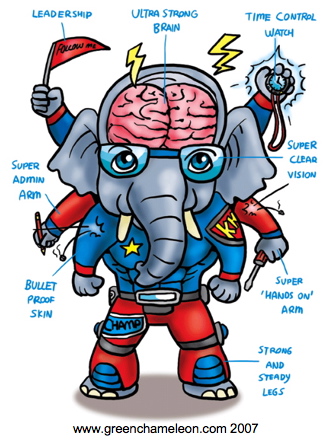There’s another interesting article in the BusinessWeek feature on wikis in the enterprise, called “No Rest for the Wiki“, where short examples of corporate wikis, like e.g. Intels Intelpedia, are introduced.
Worthy to note is that these enterprise wikis started out as small maverick projects by enthusiastic proponents and evangelists, who attracted followers and traction by “word of mouth” and “giving good example”.
This resonates well with Wikipatterns, an initiative by Atlassian, makers of enterprise wiki Confluence. Wikipatterns collects and organizes common patterns and anti-patterns of wiki adoption in the enterprise. It supports wiki evangelists and wiki consultants alike, because the patterns are both generally applicable and because they help in focusing change management efforts and attention in implementation efforts. While we all know that motivating employees to contribute is an old question of people management and organizational management, wikis and other social software are putting up both new opportunities and new problems.
This is an interesting work area for social software consultants, because when companies don’t have the time (and organizational slack) to experiment, when internal wiki proponents have no (promotion and decision) power, and when manpower is lacking they can leverage their specialized knowledge and expertise.
Indeed, as a consultant my main job is in explaining to companies the hows and whys of wikis and their effective use in the enterprise, i.e. proposing adoption paths, planning implementation projects and helping to upstart and trigger wiki adoption. So guidelines, best practices and systematic sets of success factors help in the “selling” of wikis to firms, again both by internal proponents and by external consultants like me when called in to consult on wiki projects.
Moreover, I think that both bottom-up, grass-roots and management sponsored projects can profit from the collected wikipatterns. And as more and more collaboration initiatives are leaving “skunkworks-state” it becomes yet more important to know how to engage those willing to participate and those who hesitate. Again, implementation efforts that target broad internal adoption need a powerful set of tools.
But this is not all. Social software consulting in my mind also entails helping companies to embrace the collaborative nature of web 2.0, so that they can take advantage of what it offers. Hence it becomes clear that social software consultants must master a wider vision of wikis and social software, Web 2.0 and Enterprise 2.0 alike. Consultants must also reach across the fields of organizational change management, organizational design and strategy, because wiki usage is both happening in contexts and designed for tasks that are defined by organizational strategy. So creating the right environment for wikis is not restricted to some kind of change management and wiki uptaking coaching, but needs to understand and use principles, methods and tools of strategy-level consulting when due.
Let me give you just one example: strategies like Open Innovation and Mass Collaboration, where wikis and other social software can be used to facilitate collaboration. Consulting in this space may (and will) touch social software aspects, but the groundwork and basics are of an organizational (and strategic) nature. Lucky me, I am not a one-trick wiki pony, see some other areas of expertise.
